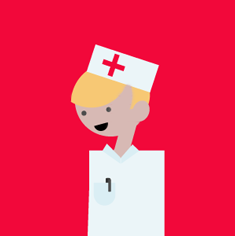THE ECOM PROJECT
AND OUR GOAL
Ecom stands for “Effective Communication in Outbreak Management: development of an evidence-based tool for Europe”. The Ecom project is a research project under the 7th Framework Programme of the EU (FP7-HEALTH-2011) and runs from February 2012 till February 2016.

THE PROBLEM
Although scientific knowledge to respond to outbreaks of infectious diseases has increased, deficiencies remain in the ability of health authorities to communicate the need for large-scale measures such as vaccination and antiviral therapy and increase its acceptance. For effective behavioural and communication strategies, integration is needed of social, behavioural, communication and media sciences.
OUR GOAL
In the Ecom project, we bring together various disciplines to go beyond the current knowledge to develop an evidence-based behavioural and communication package for health professionals and agencies throughout Europe in case of major outbreaks of infectious diseases.

OUR APPROACH
Our goal is reached through the following specific objectives:
- To assess the time-dependent influences of epidemiology and risk communication including media content on human behaviour during the A/H1N1 pandemic;
- To analyse, using social marketing principles, vaccination behaviour, audience segmentation, and vaccination service delivery;
- To analyse knowledge, attitudes, risk perception, vaccination non-response and reasons for resistance during past epidemics;
- To apply Discrete Choice Experiments to determine acceptance of preventive measures in the case of epidemic outbreaks;


- To integrate the key findings of the studies under the first four objectives, to determine critical factors, groups, and media to be addressed in the development of effective strategies;
- To test behavioural interventions and communication strategies tailored to different target audiences;
- To finalize and disseminate a package of evidence-based tools that can be tailored to individual European countries.

OUR OUTCOME
The main outcome of the Ecom project can be divided into seven key messages:
- Risk perception and recognition of personal risk status can be influenced by ‘trustworthy’ sources of information;
- Mass media / digital media have a spotlight effect that increases perception of risk but moves on in advance of later advice about appropriate action;
- There is a need to tailor communication and behavioural programmes to different groups;
- A dominant current characteristic of many existing programmes is a focus on rational decision making and the transmission of accurate advice;
- Disease characteristics, perceptions of efficacy of advice and personal risk perception have a big impact on decision making and compliance;
- Healthcare workers are key sources of information and public opinion, but are often not optimally used in such roles due to their lack of accurate risk perception and of understanding about risks associated with pandemic events;
- Under-vaccinated groups are often as diverse in their opinions and actions as the rest of the population; however they do have distinct information, access and support needs.









